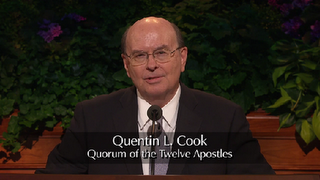Aaronic Priesthood: Arise and Use the Power of God, by Adrian Ochoa
Second Counselor in the Young Men General Presidency
This weekend was amazing! Here's a short list of the reasons why:
Saturday
- We visited two home improvement stores as a family selecting materials for our day projects, and the children were well-behaved (and excited to choose seeds to plant)
- My two older children helped me drill and prepare wood planks for additional garden plots
- My wife and daughter worked by my side all afternoon gardening, weeding, planting, and constructing a new garden, all while the boys played nicely together
- We planted two cute citrus trees (Meyer lemon and Key lime)
 |
| Garden and addition (with trellis!) |
 |
| Lemon/Lime Tree (w/ flowers) |
 |
| It came with fruit, too! |
Sunday
- My children went around the church rooms setting up chairs for classes while my wife and I sang in choir practice
- Our eighteen-month-old let my wife leave him in nursery so she could join me in the class we team-teach
- Our class was engaged and happy to join our lesson discussion
- We had a nice dinner and visit with friends from church
I know lists are hard to read (and often boring), but I wanted to quickly share the things that stood out to me from this weekend that helped to make it amazing for me. We didn't go on a cruise, we didn't go to the beach, we didn't even go to the temple: we simply stayed near home working on projects (Saturday) and serving others (Sunday).
And I'm not alone in finding fantastic what others may see as a mundane weekend--my wife thought it was a perfect weekend, too! (We really are meant for each other if we find such bliss in hard work in the yard together.)
As I reviewed Brother Ochoa's remarks on priesthood service, two sentences stood out to me and reminded me of the weekend I'm still giddy about:
You know that you are at your best when you are in the service of God. You know that you are happiest when you are anxiously engaged in good work.
Gardening is good work, and we were definitely anxiously engaged in it this weekend, so we were our happiest. Further, we were our best smiling selves on Sunday serving in choir, setting up chairs, and teaching lessons.
So, yes, we had an amazing weekend. And thanks to Brother Ochoa, I understand why it was so amazing!










